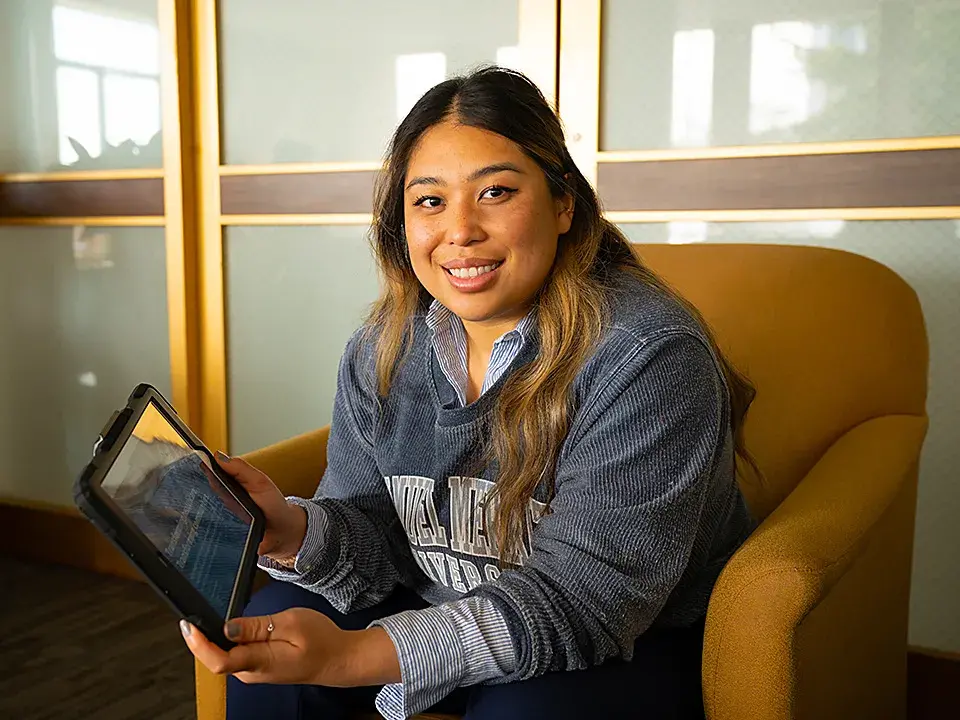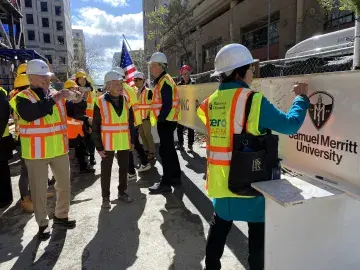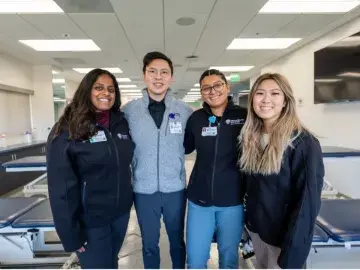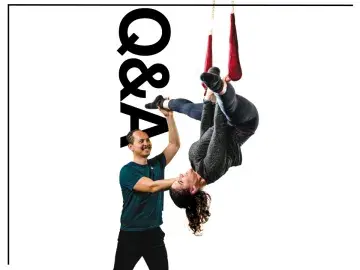Student Success: SMU Student Affairs Ranks Among the Best in the Nation

For the third year in a row, Samuel Merritt University has been named one of the 30 Most Promising Places to Work in Student Affairs, by Diverse: Issues in Higher Education, an online news website for higher education.
Student Affairs—which interacts with more than 2,500 prospective and current students annually guiding them through everything from the application process to graduate commencement—received high marks in workplace diversity, salary and benefits, family friendliness, and professional development.
We sat down with Dean of Students Craig Elliott to learn why the division shines year after year and how his team helps empower students to succeed.
Congratulations on being recognized for three straight years.
Thank you. It reminds us that we are doing good work and serving our diverse populations well. It’s also an inspiration to continue to evolve … to try to serve our students as best we can.
For the uninitiated, can you tell us what Student Affairs does?
Student Affairs has a 45-employee staff that oversees nearly a dozen departments including, Financial Aid, Academic Advising, Career Services, Student Health and Counseling, Technology Resources, Writing Support, and more.
Your team works with students even before they arrive on campus?
Yes. There are three phases of orientation. The first phase is an online orientation offered to our students shortly after they accept admission, usually about six months before school starts. During this phase, we tell them the University’s story, values, and admissions process. Our goal is to intentionally scaffold all of the new student orientation and preparations so that they remain engaged with us, have time to complete all of the requirements, and are ready to begin on day one.
What happens next in the orientation process?
The second phase is the University resource fair, which is held much closer to the start of school. The resource fair connects students to the University’s resources, which include health and counseling, academic support, disability resource center, veteran resource center, financial aid, office of diversity and inclusion, pride group, students of color collective, and more. And the third phase is program orientation, where we schedule time for new students to meet faculty and learn about their specific programs.
How do you help students once they’re at SMU?
We’re always thinking about equity and how we care for and support our students. We work with people all across the University to tailor support for each student. If it’s a money issue, we’ll enlist folks in financial aid. If it’s an academic issue, we’ll bring in folks from academic support. If it’s a mental health or wellness issue, we’ll connect them to the Student Health and Counseling Center. We don't want to see anybody leaving.
You mentioned that Student Affairs continually adjusts its services to meet students' needs. What’s an example?
Our students are changing so rapidly. The trick is how we continue to evolve at the same pace as our students. In 2017 or 2018, we were hearing about food insecurity among students. We were getting financial aid requests for help with food and we were hearing from mental health counselors that students weren’t able to concentrate or perform well because they were hungry. That’s why we started a food pantry, and it’s still up and running and successful today.
How did students’ needs shift during the pandemic?
We learned that there was a lack of technological support among our students, whether it was insufficient Wi-Fi or computers with too little data storage. At the time, we didn’t have the infrastructure to address this. For example, we didn’t have a computer loan program like we do today. But we moved quickly, asking students to make requests so we could give them scholarships to help them get the technology they needed to be successful.
What sets Student Affairs apart from its competitors?
Our approach is for our team to make intentional, personal connections with the students so they see us as people on their success team, not just a bunch of offices. We partner with faculty as well to do this, and so this maximizes our ability to pay attention to students and minimizes them falling through the cracks. Last, our student success process has faculty alerting student services if there are students who appear to need additional support, so those students are routed to us.


